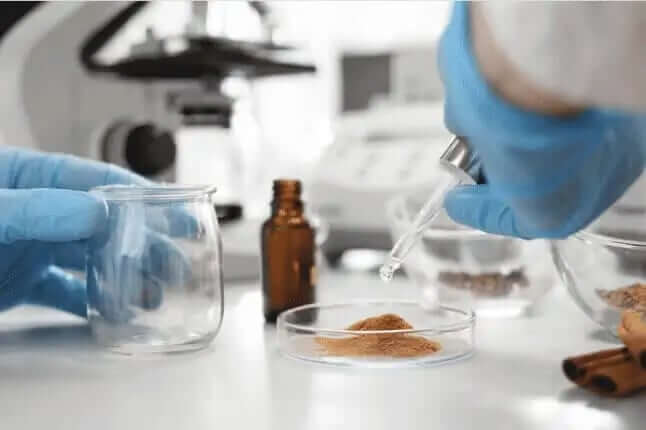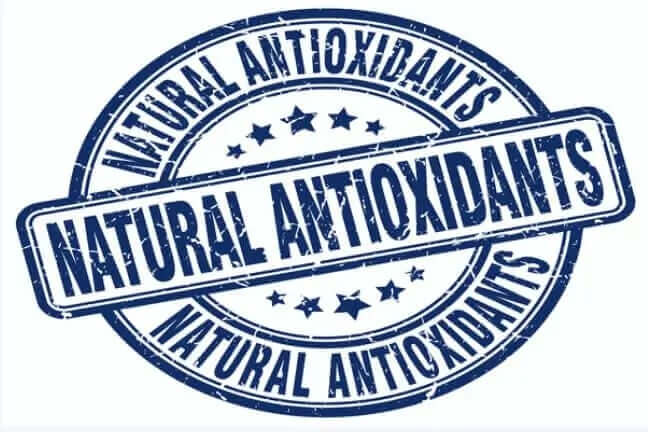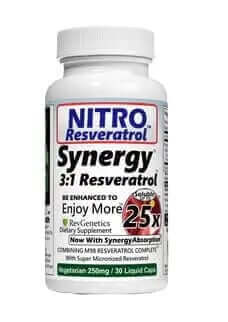Resveratrol Studies: Groundbreaking Research Reveals Anti-Aging and Longevity Benefits
The world of longevity research has been revolutionized by groundbreaking resveratrol studies that reveal this remarkable compound's potential to slow aging, enhance healthspan, and support optimal cellular function. From prestigious institutions like Harvard Medical School to the National Institute on Aging, scientists are uncovering how resveratrol mimics the life-extending effects of caloric restriction while providing unique benefits that could transform our approach to healthy aging.
These compelling resveratrol studies offer hope for millions seeking natural ways to maintain vitality and health as they age. The research demonstrates that this polyphenol compound, found naturally in grapes, berries, and other plants, works through sophisticated biological mechanisms to protect against age-related decline and promote cellular resilience.
What Recent Resveratrol Studies Reveal About Anti-Aging Potential
The most significant resveratrol studies have emerged from collaborative efforts between leading research institutions, including the Laboratory of Experimental Gerontology, the Glenn Laboratory for Molecular Biology and Aging at Harvard Medical School, and international research teams. These studies provide compelling evidence that resveratrol can slow functional decline and aging processes through mechanisms that mirror the benefits of caloric restriction.
Scientific research demonstrates that resveratrol can significantly slow the functional decline and aging in laboratory models following regular dietary patterns. While these studies haven't yet proven lifespan extension when supplementation begins in middle age, they reveal remarkable protective effects against age-related deterioration and disease.
The National Institute on Aging Breakthrough Study
A landmark National Institute on Aging (NIA) study validated earlier 2006 findings that resveratrol enhances both lifespan and health markers in older, overweight subjects. This comprehensive research suggests that resveratrol, naturally abundant in grapes, blueberries, and nuts, successfully mimics the effects of caloric restriction.
This discovery is particularly exciting because calorie-restricted diets represent one of the most effective interventions for reducing age-associated disease and deterioration. The ability of resveratrol to replicate these benefits without requiring severe dietary restrictions opens new possibilities for accessible anti-aging interventions.
How Resveratrol Studies Compare Different Dietary Interventions
The comprehensive research design of major resveratrol studies involved comparing different groups following various dietary patterns: high-calorie diets, standard diets, and every-other-day feeding schedules, both with and without resveratrol supplementation. This methodical approach allowed researchers to isolate resveratrol's specific effects across different metabolic contexts.
Caloric Restriction Mimicry: The Key Finding
Multiple resveratrol studies have confirmed that this compound can improve health by mimicking caloric restriction's beneficial effects. Caloric restriction has been extensively documented to enhance health outcomes, and resveratrol appears to activate many of the same biological pathways without requiring actual calorie reduction.
This caloric restriction mimicry effect represents a breakthrough in anti-aging research because it suggests that people can potentially access longevity benefits without the challenges and potential risks associated with severely restricted eating patterns.
Cardiovascular Benefits Revealed in Resveratrol Studies
Among the most impressive findings in recent resveratrol studies are the compound's remarkable cardiovascular protective effects. Research demonstrates that resveratrol prevents age- and obesity-associated heart function decline through multiple mechanisms that support overall cardiovascular health.
Heart Function and Cholesterol Improvements
Resveratrol studies consistently show significant improvements in heart function markers. The compound reduced cholesterol levels in non-overweight subjects while producing slight but meaningful decreases in triglyceride levels across different weight categories.
Perhaps most remarkably, arterial function improved in both overweight and normal-weight subjects receiving resveratrol supplementation. This improvement in arterial health, combined with decreased cardiac inflammation, suggests that resveratrol provides comprehensive cardiovascular protection that extends beyond simple cholesterol management.
Anti-Inflammatory Effects on Cardiovascular Health
The anti-inflammatory effects documented in resveratrol studies represent a crucial mechanism for cardiovascular protection. Chronic inflammation contributes significantly to cardiovascular disease development, and resveratrol's ability to reduce cardiac inflammation helps explain its protective effects on heart health.
These anti-inflammatory benefits appear to work synergistically with resveratrol's other cardiovascular effects, creating a comprehensive protective profile that addresses multiple risk factors simultaneously.
Structural Health Benefits: Bone, Vision, and Coordination
Resveratrol studies reveal impressive benefits that extend far beyond cardiovascular health, encompassing structural and functional improvements that support overall quality of life as we age.
Bone Health Enhancement
Research participants receiving resveratrol showed significantly better bone health across multiple measurement parameters:
- Increased bone volume - Greater overall bone mass supporting skeletal strength
- Enhanced bone thickness - Improved structural integrity and fracture resistance
- Higher bone density - Stronger, more mineralized bone tissue
- Improved bone stiffness - Better mechanical properties for load-bearing
These bone health improvements are particularly significant because bone deterioration represents a major health concern with aging. The ability of resveratrol to support bone health suggests its potential for preventing osteoporosis and maintaining mobility throughout the aging process.
Coordination, Balance, and Vision Protection
Resveratrol studies documented enhanced coordination and balance with age, crucial factors for maintaining independence and quality of life. Additionally, researchers observed fewer cataracts in subjects receiving resveratrol, suggesting protection for vision health during aging.
These functional improvements highlight resveratrol's potential to maintain the physical capabilities that enable active, independent living as people age. The combination of better balance, coordination, and vision protection could significantly reduce fall risk and maintain quality of life.
Tissue-Specific Effects: Liver, Bone, and Fat Metabolism
One of the most fascinating discoveries in resveratrol studies is how the compound mimics caloric restriction effects across different tissue types. Research demonstrates that resveratrol produces beneficial changes in bones, liver, and fatty tissue that mirror those seen with caloric restriction.
Liver Health and Metabolism
Resveratrol studies show significant improvements in liver health markers, which may contribute to the longevity benefits observed in research. Enhanced liver function supports overall metabolic health and may help explain the improved lifespan seen in some study protocols.
The liver plays a crucial role in detoxification, metabolism, and overall health maintenance. Resveratrol's protective effects on liver function suggest broad-spectrum benefits for metabolic health and longevity.
Adipose Tissue and Metabolic Function
Research reveals that resveratrol influences fatty tissue metabolism in ways that support healthy aging. These effects on adipose tissue may contribute to improved metabolic function and reduced age-related metabolic dysfunction.
The ability to positively influence fat metabolism while maintaining muscle function represents a significant advantage for healthy aging, as metabolic dysfunction often accelerates age-related decline.
Longevity Effects: What Resveratrol Studies Show About Lifespan
While resveratrol studies demonstrate clear health benefits, the longevity effects appear more complex and context-dependent than initially hoped. Research suggests that resveratrol may lengthen lifespan in subjects following calorie-restricted diets, but shows limited effects on those following standard dietary patterns.
Diet-Dependent Longevity Effects
Subjects following every-other-day feeding schedules lived longer than those on high-calorie diets, regardless of resveratrol supplementation. This finding suggests that resveratrol's longevity effects may be most pronounced when combined with dietary interventions that create metabolic conditions similar to caloric restriction.
This diet-dependency indicates that resveratrol doesn't affect the entire aging process uniformly but rather enhances specific pathways that are activated by caloric restriction or similar metabolic states.
Health Benefits Independent of Lifespan Extension
Importantly, resveratrol studies demonstrate that health benefits and longevity effects may operate independently. Even when lifespan extension isn't observed, subjects consistently show improved heart health, liver function, bone health, and other quality-of-life markers.
This distinction between healthspan and lifespan benefits suggests that resveratrol as an anti-aging supplement may be most valuable for maintaining health and vitality during aging, even if dramatic lifespan extension remains uncertain.
Mechanisms of Action: How Resveratrol Works
Understanding the biological mechanisms revealed in resveratrol studies helps explain how this compound produces its diverse health benefits and anti-aging effects.
SIRT1 Activation and Cellular Energy
Resveratrol studies have identified SIRT1 activation as a key mechanism underlying many of the compound's benefits. SIRT1, often called the "longevity gene," regulates cellular energy metabolism and stress response pathways that become less efficient with aging.
By activating SIRT1, resveratrol helps cells maintain more youthful energy production and stress resistance capabilities, contributing to the overall anti-aging effects observed in research.
Mitochondrial Function Enhancement
Research demonstrates that resveratrol supports mitochondrial function, the cellular powerhouses responsible for energy production. Age-related mitochondrial decline contributes significantly to aging processes, making resveratrol's protective effects particularly valuable.
Enhanced mitochondrial function helps explain many of the benefits seen in resveratrol studies, from improved cardiovascular health to better coordination and cognitive function.
Translation to Human Applications: Current Status and Future Directions
While resveratrol studies in laboratory models show remarkable promise, researchers emphasize that translation to human applications requires additional investigation. Human health involves more variables and complexity than laboratory models, necessitating careful clinical research to validate benefits and establish safety protocols.
Current Human Research
Emerging human clinical trials are beginning to validate some benefits observed in laboratory resveratrol studies. These studies focus on specific health outcomes like cardiovascular function, metabolic health, and cognitive performance rather than attempting to measure lifespan extension directly.
Early human research suggests that many of the health benefits observed in laboratory studies may translate to human applications, though optimal dosing and protocols continue to be refined.
Safety Considerations and Future Research
Resveratrol studies consistently demonstrate excellent safety profiles, but researchers emphasize the importance of continued safety monitoring as human applications expand. Long-term safety data and optimal dosing protocols remain active areas of investigation.
Future research directions include personalized approaches based on genetic factors, combination therapies with other longevity compounds, and development of enhanced delivery systems to maximize bioavailability.
Practical Implications: What Resveratrol Studies Mean for You
The wealth of data from resveratrol studies provides valuable guidance for individuals interested in leveraging this compound's anti-aging potential while maintaining realistic expectations about outcomes.
Evidence-Based Benefits You Can Expect
Based on current resveratrol studies, individuals may reasonably expect benefits in several key areas:
- Cardiovascular health improvements including better arterial function
- Reduced inflammation and oxidative stress
- Enhanced metabolic function and energy production
- Support for bone health and structural integrity
- Potential improvements in coordination and balance
Optimizing Results Based on Research Findings
Resveratrol studies suggest that benefits may be enhanced when combined with healthy lifestyle practices that complement the compound's mechanisms of action. This includes maintaining regular physical activity, following nutrient-dense eating patterns, and managing stress effectively.
The research indicating enhanced benefits with caloric restriction suggests that resveratrol may work synergistically with metabolic interventions like intermittent fasting or moderate calorie reduction.
Frequently Asked Questions About Resveratrol Studies
What do the latest resveratrol studies show about anti-aging benefits?
Recent resveratrol studies from prestigious institutions like Harvard Medical School and the National Institute on Aging demonstrate that resveratrol can significantly slow functional decline and aging by mimicking caloric restriction effects. Research shows improvements in cardiovascular health, bone density, coordination, metabolic function, and cellular energy production, though lifespan extension effects appear context-dependent and may require combination with dietary interventions.
How does resveratrol mimic caloric restriction according to studies?
Resveratrol studies reveal that the compound activates similar biological pathways as caloric restriction, including SIRT1 activation and enhanced mitochondrial function. This mimicry allows people to potentially access longevity benefits without requiring severe dietary restrictions, with beneficial effects on bones, liver, and fatty tissue metabolism that mirror those seen with calorie-restricted diets.
What cardiovascular benefits do resveratrol studies demonstrate?
Resveratrol studies consistently show remarkable cardiovascular improvements including enhanced heart function, reduced cholesterol levels, better arterial function in both overweight and normal-weight subjects, and decreased cardiac inflammation. These cardiovascular benefits appear across different dietary contexts and represent some of the most robust and reproducible findings in resveratrol research.
Do resveratrol studies show actual lifespan extension in humans?
Current resveratrol studies haven't yet proven significant lifespan extension in humans, particularly when supplementation begins in middle age. However, research demonstrates substantial healthspan benefits including improved cardiovascular health, bone health, coordination, and metabolic function. Longevity effects appear most promising when resveratrol is combined with caloric restriction or similar dietary interventions.
What bone health benefits do resveratrol studies reveal?
Resveratrol studies demonstrate impressive bone health improvements including increased bone volume, enhanced thickness, higher density, and improved mechanical stiffness. These structural improvements across multiple bone health parameters suggest that resveratrol may help prevent osteoporosis and maintain skeletal strength and fracture resistance during the aging process.
Are resveratrol study results applicable to humans?
While most landmark resveratrol studies were conducted in laboratory models, emerging human clinical trials are beginning to validate many cardiovascular and metabolic benefits. Researchers emphasize that human health involves greater complexity than laboratory models, making continued clinical research essential for confirming optimal applications, dosing protocols, and long-term safety in human populations.
What mechanisms do resveratrol studies identify for anti-aging effects?
Resveratrol studies identify several key mechanisms including SIRT1 gene activation (the "longevity gene"), enhanced mitochondrial function, reduced inflammatory responses, and improved cellular energy metabolism. These mechanisms work synergistically to support cellular resilience and maintain more youthful function across multiple organ systems throughout the aging process.
How safe is resveratrol according to current studies?
Resveratrol studies consistently demonstrate excellent safety profiles with minimal adverse effects reported across various dosing protocols. However, researchers emphasize the importance of continued safety monitoring as human applications expand and recommend consulting healthcare providers before beginning supplementation, especially for individuals with existing medical conditions or those taking medications.
The Future of Resveratrol Research
As resveratrol studies continue to evolve, researchers are exploring exciting new directions that may unlock even greater therapeutic potential. Current investigations focus on optimizing delivery systems to enhance bioavailability, developing combination therapies with other longevity compounds, and personalizing protocols based on individual genetic profiles.
The consistent findings across multiple resveratrol studies provide a strong foundation for continued research and development. As our understanding of resveratrol's mechanisms deepens, we can expect more targeted applications and refined protocols that maximize benefits while ensuring safety.
Making Informed Decisions Based on Current Research
The extensive body of resveratrol studies provides valuable guidance for individuals considering this compound as part of their health optimization strategy. While dramatic lifespan extension remains unproven in humans, the consistent evidence for healthspan benefits offers compelling reasons to consider resveratrol supplementation.
The key to success lies in maintaining realistic expectations based on current research while choosing high-quality supplements and integrating resveratrol into a comprehensive approach to healthy aging. Resveratrol as an anti-aging supplement shows particular promise when combined with proven lifestyle interventions that support the same biological pathways.
As research continues to expand our understanding of resveratrol's potential, staying informed about new findings will help ensure that individuals can make the most of this remarkable compound's benefits while contributing to the growing body of knowledge about natural approaches to healthy aging and longevity.
References:







